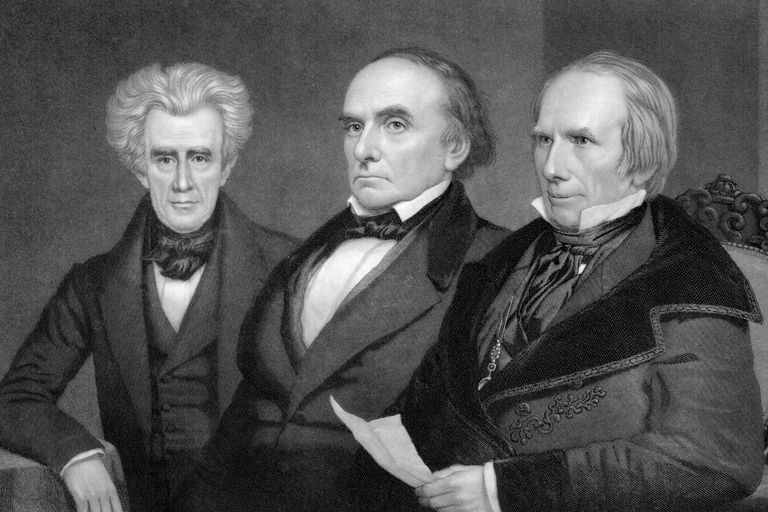Archive for October 10th, 2018
The Great Triumvirate, Summarized
Posted by Joshua Sharf in History on October 10th, 2018
 Tonight was our book club meeting for The Great Triumvirate, Merrill Peterson’s seminal history of the second generation of American political leadership – Clay, Webster, and Calhoun.
Tonight was our book club meeting for The Great Triumvirate, Merrill Peterson’s seminal history of the second generation of American political leadership – Clay, Webster, and Calhoun.
In discussing the differences among the three, and summing up, a point occurred to me that I hadn’t thought of until I offered it to the group: each man’s greatest strength represented a singular aspect of statesmanship.
Clay was the consummate legislator, putting together a comprehensive program of action, and adhering to the principle that politics is the art of compromising without being compromised. He was a bit of a peacock, but he also did the hard work of figuring out where there was common ground, allowing people to give without betraying their principles.
Perfect for a legislator, but perhaps not so much for an executive, and country might well be better off that Clay never became president. As secretary of state, he hated the drudgery of paperwork and administrative work. And while he defined the pragmatic vision of the Whigs, he made the party over so much in his image that it didn’t long survive his death.
Webster was the great rhetorician, able to encapsulate an argument or an idea in a monumental speech. To him belong three of the greatest speeches of the 19th Century – the Plymouth Oration, the Bunker Hill Monument, and the Second Reply to Hayne. None of the main ideas is original, but each cemented in the public mind core principles of the republic.
And yet, for all his rhetorical brilliance, Webster was always going to be a follower, never the leader of either the Federalists or the Whigs. Of the three, he might have made the best president. As secretary of state, he made efficient use of his executive power. But because he could never lead his party, he would never even so much as sniff a nomination.
Calhoun was the theoretician, constructing a philosophical system to defend the south, its way of life, and of course, slavery. His great image of the Union as a contract among sovereign states rather than a covenant among free people would prove flexible enough to let him manipulate the Senate for decades, usually in opposition.
But in its service, Calhoun proved bafflingly flexible himself, finding principles convenient to the debate of the moment that he believed could fit in his overall philosophical framework. This let him maintain an iron grip on South Carolina politics, and eventually endeared him to much of the South, but in his lifetime, it left him isolated. Without a party or national vision, it’s hard to see how he could have governed as president.
Of course, these were only strengths, not the sum total of their political skills. Clay could speak. and buried in his American system was a philosophy of government. Webster understood ideas as well as anyone, and could compromise to get bills passed. And Calhoun’s rhetoric was sharp, if unimaginative, and he knew how to frame issues to draw distinctions and gain allies.
Still, the life’s work and achievements of each would be defined by their typical working styles – Clay the pragmatist; Webster the speaker, and Calhoun the thinker.



